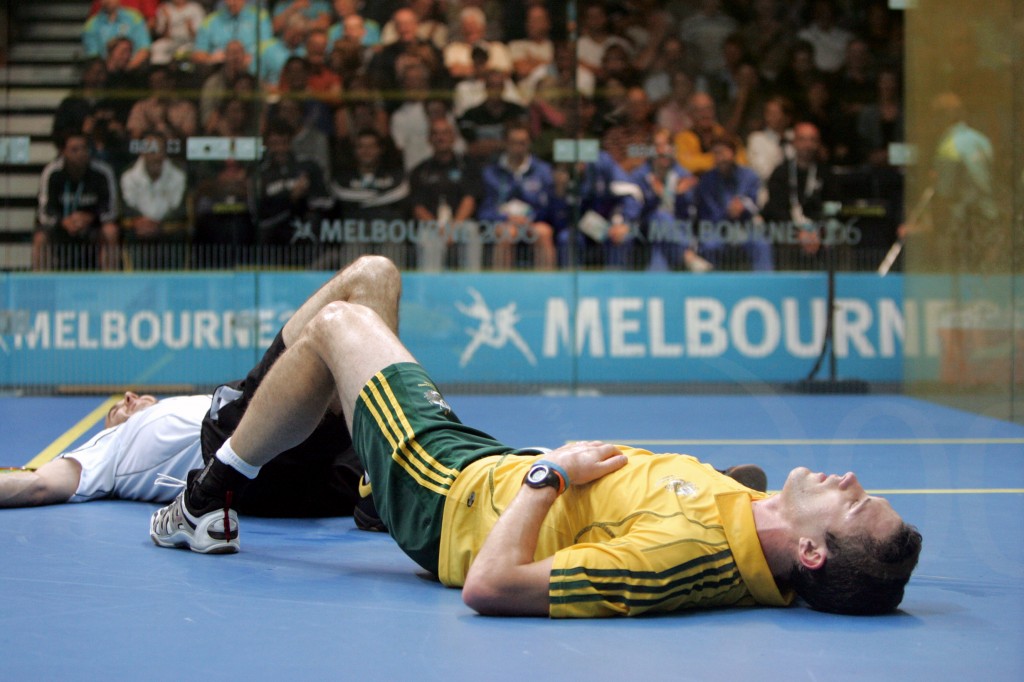
By Anthony Ricketts, PSA No. 10
Squash, like many other professional sports, involves traveling and playing in different time zones week after week. This is a serious issue that nobody takes lightly, but the players who deal with this problem the best will generally perform and feel better throughout the event.
A recent example of dealing with jet lag on the Men’s Professional Tour was in October where we played the US Open in Boston, and then played another Super Series Event in Islamabad, Pakistan, three days later—a time change of eight hours (and traveling east is renowned as being the toughest way to travel). To give insight into what some players do to minimize the impact of jet lag, and maybe help you when you are dealing with this yourself, I will discuss some things that can help. Whilst some things will seem obvious, the more you can do to help the better!
Okay, let’s take it step by step as if we are again flying from Boston to Islamabad (or even Los Angeles to New York). I have an early flight in the morning so I will make sure all the washing is done and my bags are packed the night before (as light as possible). A feeling of organization brings much needed simplicity to travel, which we are all looking for. I will also, obviously, get to bed as early as possible the night before (at this stage I have not thought about what time it is in Pakistan, as I have still had to work a full day in Boston). I prefer to set my alarm with plenty of time to get organized in paying my hotel bill, eating some breakfast (don’t want to travel hungry) and not having to rush or panic to get to the airport.
Whilst flying, it is also better to be wearing your most comfortable clothes, the light loose fitting pants and top. Also, many top professional athletes wear skins (www.skins.net) when flying which is a progression of the flight socks, except they cover the whole leg. This will increase circulation, draw heat away from the body and ensure that your legs (especially ankles) are not swollen on arrival. These can also be worn after your matches to help in recovery.
On the flight (approximately 10 hours), I will try to sleep whenever my body will let me. On occasions when arriving into a country early in the morning, I will take a sleeping pill about five to six hours out from landing to ensure that I have had some sleep to get me through the day. However, this I do not recommend completely as it sometimes does not allow a proper sleep and you can feel worse on arrival. The important thing on the flight is to stretch as much as possible. Really try and make the effort to get up and loosen your body whenever you get the opportunity. This will pay off when you get there, because you will not feel as crampy and tight through your back and hamstrings. And it is better to drink as much water as possible as opposed to alcohol, coffee and tea (diuretics). This will limit your dehydration and allow the body to feel clear and fresh. Although, as we all know, a glass of red wine can guarantee a good sleep, I would leave it at one glass.
On arriving in Pakistan (which in this case is 6 a.m., or 10 p.m. in Boston), I will try and get two hours of sleep before lunch. This is just enough to get me through the day without disturbing my sleep that night.
The most important thing at this stage (after waking up) is to eat as much healthy food (fruit, veggies) as possible, drink as much water as possible and get one relatively good exercise training session done—does not really matter too much what you do just as long as you have a heavy sweat to get out everything you were still carrying from the flight.
On this first night I will do my best to stay awake through to about midnight. This will ensure that, worst case, I will wake up about 5 a.m., which is sufficient sleep to get up and have a good breakfast and start the day. In order that I am able to stay up until midnight, I will make the effort (as hard as it is) to go out for dinner and stay away from laying on the bed and reading a book or watching TV—where I would be destined to fall asleep.
It is also a good idea to carry sleeping tablets with you, as I believe, psychologically, this helps to take the pressure off having to get some sleep to perform the next day. The bottom line, when it comes down to it, is we only have to perform on the squash court for one to two hours a day, and we can all manage to get ourselves right for these hours!


